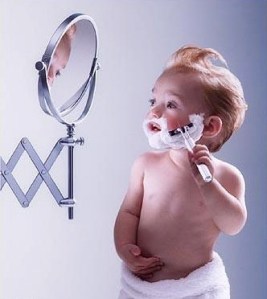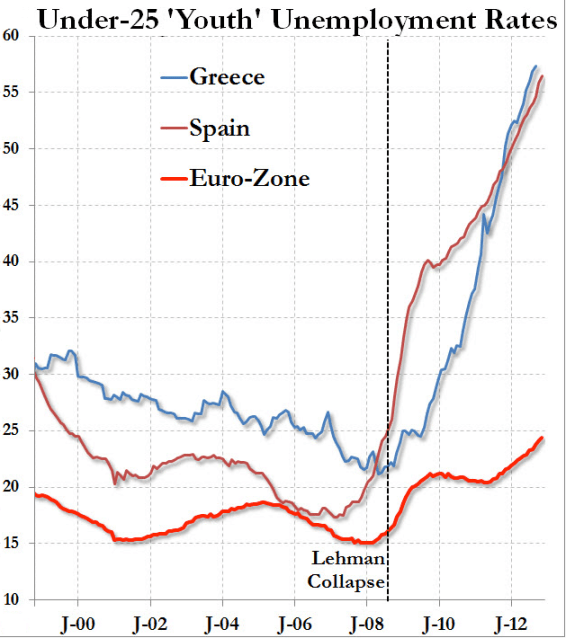What’s scarier than a 14-year-old girl choosing her sexiest Facebook profile pic? Maybe a 14-year-old girl inflating her résumé on her new LinkedIn profile. Childhood used to be a time of self-exploration, but the Internet is pushing kids to define themselves early and put that facade on display.
This dynamic gained momentum today as LinkedIn opened to U.S. teenagers 14 and up, with kids age 13 and older allowed on the platform in some countries. The idea is to let them get a head start on building a professional network, as well as scope out the new university pages LinkedIn launched today. These show the companies and the fields that a college’s graduates get hired in to help young students find the right fit.
In terms of security and privacy, LinkedIn’s doing everything it can to keep kids physically safe: They’re hidden in search results; don’t show their full last names, and can’t share much publicly.
But what about the mental, developmental and emotional impact of plotting your career just as you hit puberty? It used to be enough to get good grades and a summer job. Soon that could leave kids looking like slackers. Where are your internships? What student club did you start? Have you chosen between robotics and computer science?
 It’s never too early to search for your passion. Kids should try things out. Dabble in different areas, take some art classes, learn an instrument, or try some temp work at Mom’s office. I wish I’d given journalism a shot when I was younger. I didn’t discover how much I enjoyed it until after I graduated from college. Maybe LinkedIn prodding me to get a column in the Brighton High School Trapezoid or a mailroom job at the local paper would have catalyzed my career.
It’s never too early to search for your passion. Kids should try things out. Dabble in different areas, take some art classes, learn an instrument, or try some temp work at Mom’s office. I wish I’d given journalism a shot when I was younger. I didn’t discover how much I enjoyed it until after I graduated from college. Maybe LinkedIn prodding me to get a column in the Brighton High School Trapezoid or a mailroom job at the local paper would have catalyzed my career.
The problem isn’t teens doing things that could fill out their LinkedIn profile. It’s them choosing what to try after judging themselves through the hypothetical eyes of recruiters and college admissions officers lurking the web. That could pressure them into making decisions based on what others want, rather than what excites them — a social network-propelled Observer Effect.
“I love painting but should probably go to coding camp because college recruiters will like it.” “Political science is cool but economics gets people better jobs.” These thoughts could derail the next Picasso or Obama.
Kids had enough to feel subconscious about without a professional network presence. For instance, their bodies. And now their Facebook, Instagram, and Pinterest profiles. They’ll have their whole lives to feel overly proud or utterly insignificant because of their jobs.
People are fulfilled and often contribute more to the world when they do what they love. That’s a process filled with lots of trial and error. But boxing up life into a profile could discourage teens from taking the scenic route to a career path. Parents should be counteracting this by telling their children they’ll support whatever makes them happy. Too often they do the opposite, pressuring them to do what they’re best at, what’s lucrative, and what’s traditionally respected.
That’s the real root of the problem, not technology, but tech can exacerbate it. And it’s not just LinkedIn. Facebook increasingly has professional significance, and kids already need to watch out for posting inappropriate content to social media. Lots of services allow young users in hopes of locking them in as their influence and discretionary income grows. LinkedIn could get left behind if it stayed adults-only.
 And it’s not just self-serving.There’s no denying that LinkedIn could benefit kids by getting them to think about their careers in the first place.
And it’s not just self-serving.There’s no denying that LinkedIn could benefit kids by getting them to think about their careers in the first place.
Most don’t, and many end up underemployed or with generic jobs they hate. Perhaps the same “everyone is doing it” temptation of social networks could get teens on LinkedIn’s professional one. Some families don’t provide any job guidance at home, and with still-high unemployment in the US and abroad, there are plenty of kids who can use all the help they can get.
And for privileged kids with grand ambitions, LinkedIn could offer another leg-up. It might help them connect with peers with similar interests, find mentors, or ask adults for opportunities. LinkedIn’s university pages may bring more transparency to how well different schools prepare students for their future.
Unfortunately, if parents don’t step up, it might force that future on some kids before they’ve discovered who they are.
[Image Credits: Mustachifier, The Blaze]
